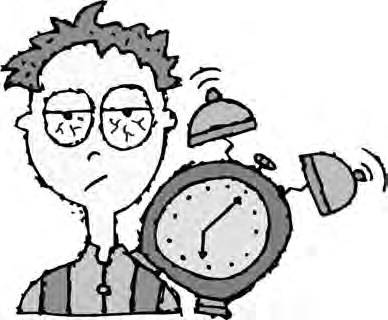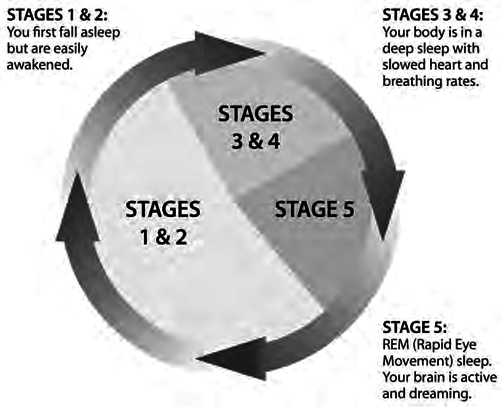100 Perks of Having Cancer: Plus 100 Health Tips for Surviving It (87 page)
Read 100 Perks of Having Cancer: Plus 100 Health Tips for Surviving It Online
Authors: Florence Strang
Tags: #Health; Fitness & Dieting, #Diseases & Physical Ailments, #Internal Medicine, #Oncology, #Cancer, #Medicine & Health Sciences, #Clinical, #Medical Books, #Alternative Medicine, #Medicine

value.’’ So says Dr. William Frey, a professor at the University of Minnesota
who actually wrote an entire book on the subject entitled
Crying: The Mystery
of Tears.
“I have suggested that we may feel better after crying because we
are literally crying it out,” he writes.
Other animals have tears that only lubricate the eye, but humans are
the only mammals on the planet to shed these “emotional tears.”
Why are you holding back?
Many people fight tears because they think that crying makes them appear
weak, especially men or women that hate stereotypes of crying women like
myself. Others don’t want to cry in front of their kids or loved ones so as not
to make them “feel bad” or worry. But crying brings on empathy and support
from loved ones and actually brings people closer to each other, and it also
teaches kids the important lesson that it’s really okay to cry.
Science says you will feel better after a good cry. Between 6 and 8 PM is
the most common time for emotional crying. But you can do it anytime
you want. If you’ve been holding back your tears for the right time . . . how
about now?


Perk #87
Cancer Gave Me a Cause
I
t’s not like I didn’t have plenty of “causes” to choose from before getting
cancer. Between grappling with anxiety for much of my life, being a single
parent, and having a child with autism, I have enough causes to write my
own
Chicken Soup for the Soul
book (I will call it
Chicken Soup for the Chicken’s
Soul
). I am not the type to take things lying down, and each challenge in
life has kicked me into action. For example, to help me be a better autism
mom, I have become a self-made expert in the area of autism (really, ask
me anything). I have also read hundreds of self-help books to help me better
cope with my anxiety issues.
However, cancer is the one thing in my life that motivated me to action
to help
other people,
and therefore I consider it to be my cause. Before you
block me from Facebook or change your phone number, I assure you I will
not come to you looking for money to support my cause (well, hardly ever).
You see, my cause is not to raise money or even to help find a cure for cancer,
but rather to help others affected by this disease to realize the benefits of
adopting a survivor’s attitude (which combines a positive attitude with pos-
itive action).
My cancer journey has not been an easy one. Over the course of about
a year, I endured countless tests and procedures, three surgeries resulting in
the loss of my left breast and associated lymph nodes, six rounds of
chemotherapy, and twenty-five radiation treatments. However, in that same
year, I met my soul mate and fell in love, I started blogging, I fulfilled a life-
long dream of being published, and I started a new business venture. The
moral of the story is this: just because you have cancer does not mean that
you have to lie down and die.
In the book
Full Catastrophe Living,
bestselling author Jon Kabat-Zinn
says, “As long as you are breathing there is more right with you than there
is wrong, no matter how ill or how hopeless you may feel.”
That is so true! Think of all the things your body has to do to allow you
I 367 J

368
100 Perks of Having Cancer
to just sit there and read this book: Your heart is beating, your organs are
functioning, your cells are reproducing, your toenails are growing, and you
are breathing. That’s not even to mention the complex mental processes that
are happening to allow you to read and understand these words. Even if
you do have cancer, there is a lot more right with your body at this moment
than there is wrong. So as long as there is breath left in you, why not make
the most of every moment!
Don’t let cancer put your dreams on hold.
Live every day to its fullest.
HEALTH TIP #87
The Importance of Dreaming . . . and Sleeping
“I
’ll sleep when I’m dead.”
Well, that may be sooner than you think if you don’t get enough quality
sleep according to the latest research.
A 2011 study involving 50,000 adults followed over eleven years showed
a 45 percent increase in heart attacks among those who reported they suffer
from insomnia. That’s huge. But not surprising considering other research
that has come before it.
Poor sleeping habits are linked to:
●
High blood pressure:
A 2011 study out of Harvard linked poor sleep with an
83 percent increased risk of developing high blood pressure in older adults.
One possible factor is that when you sleep, your blood pressure drops, but in
poor sleepers that never happens. Over time, it takes a toll on your system.
●
Obesity:
Lack of sleep causes hormone changes, which lead to a slowed
metabolism, which leaves you burning less calories and making poor
food choices when you’re awake. Poor sleep habits were also linked to
making poor diet choices when you’re awake.

Perk #87: Cancer Gave Me a Cause
369
●
Depression/anxiety/mood changes:
During sleep the brain releases chem-
icals that regulate mood. Insomnia is often a precurser to depression and
it has been found that if the insomnia is cured, the depression will be too.
●
Poor memory:
During sleep, our memories are “consolidated.” You take
what you have learned and seen that day, and convert it to a “hard copy”
in your brain to retrieve later if you need it. Disrupted sleep does not
allow for this conversion.
●
Diabetes:
Sleep apnea, a condition where sleep is disrupted by an inabil-
ity to breathe properly, causes a lower sensitivity to insulin, the hormone
responsible for regulating blood sugar. A University of Chicago study
showed a “robust association” between (ob structive) sleep apnea and
insulin resistance, glucose intolerance and the risk of type 2 diabetes,
inde-
pendent
of obesity.
●
Impaired immunity:
(Hint: Your red flag should
be flying with this one since your immune func-
tion is related to your risk of cancer.) During
sleep your body releases cytokines that aid in
fighting infection. Poor sleep habits reduce the
production of these proteins so they are not
available when your body needs them. This leads
to increased susceptibility to bugs and more sick-
ness. This was actually measured in adults receiving
the flu vaccine. Those with insomnia did not
produce the level of antibodies (flu fighters)
from the vaccine that the good sleepers did.
●
Cancer:
Here’s a kicker: A 2012 study looking at 412 postmenopausal
breast cancer patients showed a definitive link between lack of sleep and
more aggressive tumors and recurrence. The study demonstrated that
those who reported getting an average of six hours of sleep/night or less
developed more aggressive tumors with a greater rate of cancer recurrence.
There was no risk difference in premenopausal women, suggesting there
is a different underlying process to breast cancer when estrogen is
involved. This was the first study of its kind, so more research is needed.


370
100 Perks of Having Cancer
It is obvious from the list that “poor sleep habits” go hand in hand with
an “unhealthy body.” Insomnia has become more common today because
